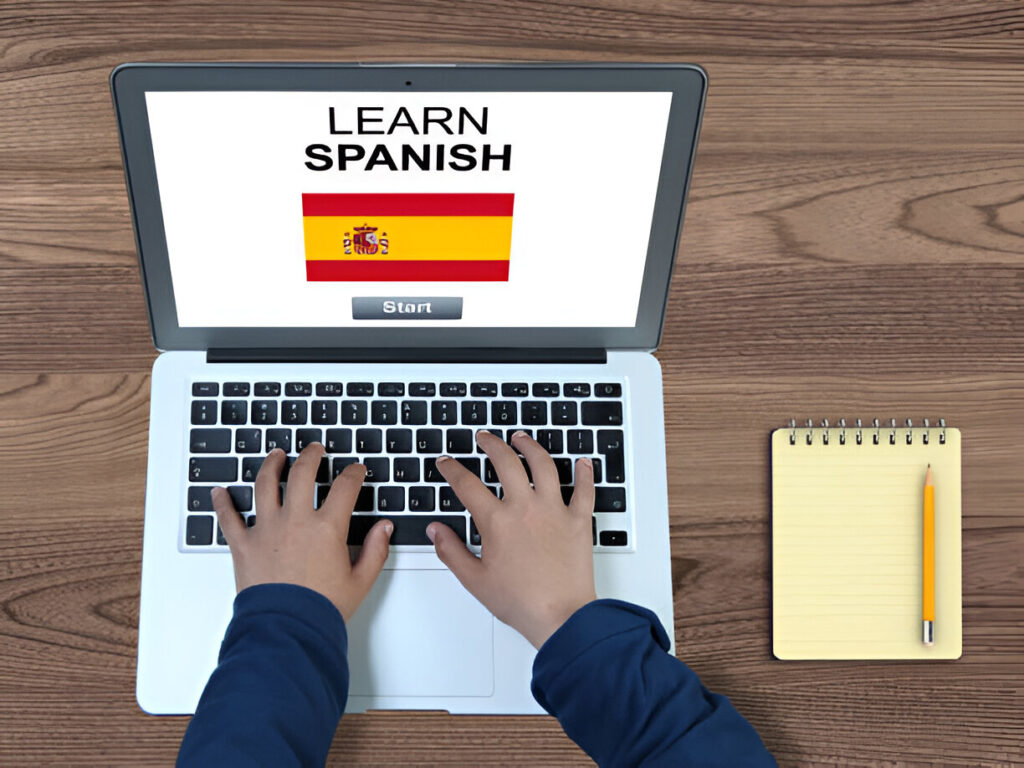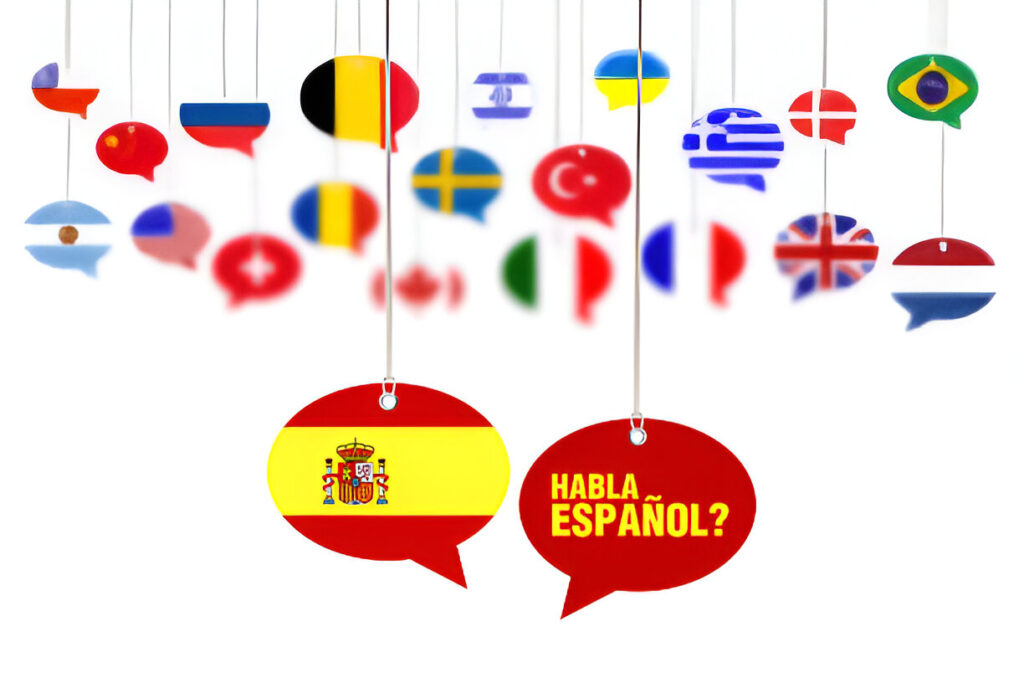The Spanish Nationality Test? It’s more than just a formality; it’s a key step toward obtaining Spanish citizenship. If you’ve been dreaming of becoming a Spanish citizen, this test might be your next challenge. But what exactly does it entail? How do you prepare for it? And most importantly, why is it so crucial? Let’s break it down into digestible bits, so you can face this test with confidence.
What Is the Spanish Nationality Test?
If you’re aiming to become a Spanish citizen, you’ll need to pass a specific test, known as the Spanish Nationality Test. This test is a crucial step in the naturalization process, and it’s designed to ensure that applicants have a solid grasp of Spanish culture, history, and language. Let’s break down what you can expect from this test and how to prepare for it.
Purpose of the Test
The Spanish Nationality Test is essentially a way for Spain to make sure that people who want to become citizens are well-integrated into Spanish society. It’s not just about knowing facts; it’s about showing you understand what it means to be part of the Spanish community. Think of it as a way to check if you’re ready to join the team.
What Does the Test Cover?
The test is divided into two main sections: the language test and the cultural knowledge test.
- Language Test: This part checks your proficiency in Spanish. It isn’t just about speaking and writing; you’ll need to demonstrate that you can understand and use the language in various contexts. Expect to answer questions on grammar, vocabulary, and comprehension.
- Cultural Knowledge Test: Here, you’ll face questions about Spanish history, geography, and social norms. It’s like a pop quiz on Spain’s past and present. You’ll need to know key historical events, famous landmarks, and basic facts about Spanish society.
How to Prepare for the Test?
Preparation is key to passing the Spanish Nationality Test. Start by brushing up on your Spanish language skills. If you’re not confident, consider taking language classes or using online resources. Practice speaking, reading, and writing in Spanish as much as possible.
For the cultural knowledge part, immerse yourself in Spanish history and culture. Read books, watch documentaries, and maybe even visit some local museums if you can. There are also study guides and practice tests available online that can help you get a feel for what to expect.

Test Day: What to Expect
On the day of the test, make sure you bring all necessary documents, including your ID and any required paperwork. The test usually consists of multiple-choice questions, but be prepared for different formats. Stay calm and take your time with each question. Remember, it’s not a race—accuracy is more important than speed.
After the Test
Once you’ve taken the test, all you have to do is wait for the results. If you pass, you’ll be one step closer to becoming a Spanish citizen. If not, don’t worry—many people take the test more than once. Use it as a learning experience to improve and try again.
Becoming a Spanish citizen through this process shows your commitment to joining Spanish society. It’s a way to prove that you’re ready to fully embrace your new home. Good luck, and remember that preparation is the best way to succeed!
How Do You Prepare for the Citizenship Spanish Questions?
Getting ready for the Spanish citizenship test might seem like a big task, but with the right approach, you can tackle it with confidence. Here’s a guide to help you get on the right track and ace those questions.
Brush Up on Your Spanish Language Skills
First things first, make sure your Spanish is up to snuff. The language portion of the test is all about demonstrating your ability to communicate effectively. To get prepared, try these tips:
- Practice Speaking: Engage in conversations with native speakers or join a Spanish-speaking group. The more you speak, the more comfortable you’ll become.
- Read Regularly: Pick up Spanish newspapers, books, or online articles. This will help you get used to different styles of writing and expand your vocabulary.
- Listen and Watch: Tune into Spanish radio stations, watch Spanish TV shows or movies, and try to understand the content without subtitles. This will boost your listening skills and comprehension.
Dive into Spanish Culture and History
The test also covers Spanish culture and history, so you’ll need to be familiar with these topics. Here’s how you can prepare:
- Study Spanish History: Look into key historical events, important figures, and significant milestones in Spain’s past. There are plenty of online resources, books, and documentaries that can give you a good overview.
- Explore Spanish Geography: Learn about Spain’s regions, major cities, and notable landmarks. Understanding the geography will help you answer questions about locations and regional characteristics.
- Get to Know Spanish Social Norms: Familiarize yourself with current social customs and traditions in Spain. Knowing about common practices and cultural nuances can be really helpful.
Use Practice Tests and Study Guides
One of the best ways to prepare is by using practice tests and study guides. These resources can give you a feel for the types of questions that will be on the exam and help you gauge your progress. Here’s how to use them effectively:
- Take Practice Tests: Try to simulate the test environment by timing yourself and answering practice questions. This will help you get used to the format and manage your time during the real test.
- Review Study Guides: Many study guides are available online or in bookstores. They often include practice questions, tips, and detailed explanations of what you need to know.
Join Study Groups or Classes
If you prefer learning with others, consider joining a study group or enrolling in a preparation class. Being part of a group can provide additional support and motivation. Plus, you can benefit from shared resources and collective knowledge.
Stay Calm and Confident
Finally, as the test day approaches, try to stay calm and confident. Confidence comes from preparation, so if you’ve been diligent in your studies, you’ll be ready. On the day of the test, make sure you arrive early, bring all necessary documents, and approach each question with a clear mind.
Preparing for the Spanish citizenship questions doesn’t have to be overwhelming. With focused practice and a good study plan, you’ll be well on your way to passing the test and moving closer to becoming a Spanish citizen. Good luck!
What Language Skills Do You Need in Spanish?
By focusing on these areas, you’ll build a strong foundation in Spanish and become more proficient over time. Remember, learning a language is a journey, and every step you take brings you closer to fluency.

Basic Communication Skills
When learning Spanish, start with the basics. You’ll want to get comfortable with everyday greetings, simple questions, and responses. Imagine you’re at a café in Madrid; knowing how to order coffee and ask for the bill is essential. This level involves basic vocabulary and common phrases. It’s like building the foundation of a house—everything else rests on this solid base.
Listening Skills
Being able to understand spoken Spanish is crucial. This means catching the gist of conversations, even if you don’t understand every single word. Picture yourself watching a Spanish TV show or listening to a podcast. At first, it might feel overwhelming, but gradually, your ears will tune into the rhythm and nuances of the language. Listening is key to improving your comprehension and helps you adapt to different accents and speeds.
Speaking Skills
Once you’ve got the hang of basic phrases and listening, it’s time to practice speaking. Start with simple sentences and gradually build up to more complex ones. Think of it like learning to ride a bike—you start with training wheels and work your way up to balancing on your own. Speaking skills involve not only pronouncing words correctly but also using proper grammar and sentence structure. Practice makes perfect here, so don’t be afraid to make mistakes. Each error is a stepping stone to improvement.
Reading Skills
Reading in Spanish helps reinforce your vocabulary and grammar. Start with children’s books or simple articles and work your way up to more advanced texts. Imagine you’re exploring a new city; reading Spanish texts is like finding hidden gems that expand your language knowledge. The more you read, the better you’ll understand the language’s structure and style, which in turn helps with writing skills.
Writing Skills
Writing in Spanish is another important skill to develop. Begin with short paragraphs and gradually work up to more complex compositions. Think of writing as painting a picture—each sentence adds detail and color to your overall message. Good writing involves proper grammar, punctuation, and vocabulary. Practice writing letters, journal entries, or even social media posts in Spanish. This will help you communicate clearly and effectively in written form.
Cultural Context
Understanding the cultural context is also vital when learning Spanish. Language is deeply connected to culture, and knowing a bit about Spanish-speaking countries’ customs and traditions can enhance your language skills. It’s like learning the rules of a game—you’ll play better if you know how it’s traditionally played. Cultural awareness helps you use language appropriately and understand nuances that aren’t always obvious from a textbook.
Practical Application
Finally, putting your Spanish skills into practice is the best way to learn. Try speaking with native speakers, joining Spanish language groups, or even traveling to Spanish-speaking countries. The real-world application of your skills is like taking your language knowledge for a spin and seeing how well it performs. Immersion helps you apply what you’ve learned in a practical, everyday context and boosts your confidence in using Spanish.
How Is the Test Structured?
The Spanish Nationality Test is structured in two parts: the knowledge test and the language test. The knowledge test is multiple choice, while the language section may include both written and oral components.
Overview of the Test
When you’re gearing up for a language test, it’s helpful to know what to expect. Most language tests are designed to evaluate your skills across several key areas: reading, writing, listening, and speaking. Think of it as a multi-part challenge where each section gives you a chance to show off your abilities in different ways.
Reading Section
In the reading part of the test, you’ll be given various texts—these might include passages, articles, or short stories. Your job is to read through them and answer questions based on what you’ve read. This section tests your ability to understand and interpret written material. Imagine you’re trying to solve a puzzle; the pieces are the details in the text, and you need to put them together to find the correct answers.
Writing Section
The writing section usually involves tasks like composing essays, writing letters, or completing short responses. You’ll need to demonstrate your ability to organize your thoughts clearly and use proper grammar and vocabulary. Think of this like crafting a message; you want to make sure it’s coherent and effectively conveys your ideas. This part of the test assesses your ability to communicate in written form, from structuring arguments to using appropriate language.
Listening Section
For the listening section, you’ll listen to recordings of conversations in the target language and then answer questions about them. This tests how well you can follow spoken language and understand different accents or speech speeds. Picture this as tuning into a radio station—you need to catch and process the information being broadcasted to answer the questions correctly.
Speaking Section
In the speaking part of the test, you’ll engage in spoken conversation with an examiner or record your responses. This section evaluates your ability to speak clearly and coherently, using appropriate vocabulary and grammar. Think of it as having a casual chat with a friend—you want to express your ideas clearly and naturally. You might be asked to describe something, express an opinion, or answer questions, so it’s important to be comfortable speaking in the language.
Test Duration and Format
The length of the test and the format can vary depending on the test provider. Some tests are divided into separate sections, while others may integrate all skills into a single, continuous test. It’s a good idea to check the specific format and timing of the test you’re taking. Knowing how long you have for each section can help you manage your time effectively and reduce any test-day anxiety.
Preparation Tips
To prepare effectively, practice each section of the test. Read a variety of texts, write essays and short responses, listen to recordings or podcasts in the target language, and practice speaking with native speakers or language partners. It’s like training for a marathon—you need to prepare in different ways to be ready for the full test experience.
By understanding the structure of the test and preparing accordingly, you’ll be better equipped to handle each section with confidence.
What Are the Passing Criteria?
When it comes to passing any kind of assessment, whether it’s an exam, a certification, or a practical test, it’s crucial to know what the specific criteria are. Let’s break down these criteria in a simple and engaging way.

Clear Objectives
The first step in meeting passing criteria is to know what you need to achieve. Think of it like following a recipe. If you’re baking a cake, you need to know the ingredients and steps required. Similarly, for passing a test or completing an assessment, you need to be aware of what goals you need to hit. These objectives are usually outlined by the institution or organization conducting the assessment and can include specific skills, knowledge areas, or practical abilities that must be demonstrated.
Scoring Requirements
Next, it’s important to understand how your performance will be scored. Imagine you’re playing a video game where you have to reach a certain level to win. In the case of passing criteria, there’s often a minimum score or percentage you need to achieve. This could be a specific number of points, a percentage of correct answers, or a certain level of proficiency in practical tasks. Knowing this helps you set clear targets and focus your efforts on meeting them.
Time Constraints
Another key element is the time you have to complete the assessment. Think of it like running a race—you need to finish within a certain time frame to win. Assessments often come with a set time limit, and managing this time effectively is crucial. It’s not just about finishing but finishing within the allotted time while maintaining quality and accuracy.
Format and Type of Questions
Understanding the format of the questions or tasks is essential. For instance, if you’re taking a test, knowing whether you’ll face multiple-choice questions, essays, or practical exercises can significantly impact your preparation. It’s similar to preparing for a sports game where knowing whether you’re playing soccer or basketball influences your training routine.
Submission and Presentation Guidelines
Finally, consider how your work needs to be presented. This could include formatting requirements, how to submit your work, or any specific instructions about the presentation. It’s akin to following guidelines for a project at work—getting the details right can make a big difference in the outcome.
If you’re considering obtaining Spanish nationality, Marfour International Law Firm can provide expert assistance throughout the process, including the Spanish nationality test. The test is an essential part of the citizenship application, assessing your knowledge of Spain’s history, culture, and legal system. Marfour’s experienced team offers comprehensive support to help you prepare effectively.
They provide tailored resources and guidance to ensure you understand the test requirements and enhance your chances of success. With Marfour’s help, you can approach the nationality test with confidence, knowing you have a reliable partner to navigate the complexities of acquiring Spanish citizenship.
FAQs
What topics are covered in the Spanish Nationality Test?
The test covers Spanish history, culture, society, laws, and basic language skills. It’s designed to assess your understanding of Spain and your ability to integrate as a citizen.
Can I retake the Spanish Nationality Test if I fail?
Yes, if you don’t pass the test on your first attempt, you are allowed to retake it. There is no limit on the number of retakes, but you may need to pay the test fee again.
How proficient in Spanish do I need to be for the test?
You need to have basic proficiency in Spanish. You should be able to understand and communicate in everyday situations, though you don’t need to be fluent.
Conclusion
The Spanish Nationality Test may seem daunting at first, but with the right preparation, it’s entirely manageable. From understanding the structure to preparing for citizenship Spanish questions and brushing up on your language skills, every step brings you closer to that dream of Spanish citizenship. Stay calm, study well, and soon enough, you’ll be one step closer to calling Spain your new home.

